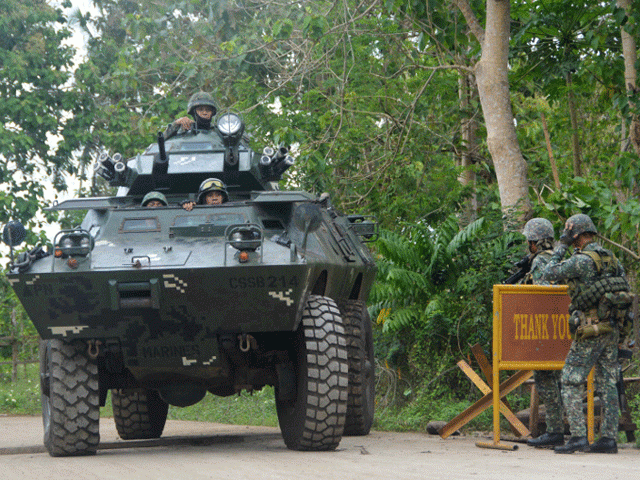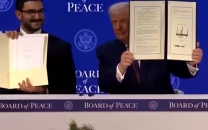Abu Sayyaf leader behind execution of foreigners is killed: Philippines
Troops killed six members of the IS-linked group during a firefight on the tourist island of Bohol

Troops killed six members of the IS-linked group during a firefight on the tourist island of Bohol. PHOTO: AFP/FILE
Troops killed at least six members of the Islamic State-linked Abu Sayyaf during the firefight on the popular tourist island of Bohol on Tuesday but suffered four casualties.
Five dead as militants attack Philippine tourist island: army
The military has recovered the body of Muamar Askali, also known as Abu Rami, a former spokesman for Abu Sayyaf, a group well known for extortion, piracy and kidnaps for ransom.
Armed Forces chief of Staff General Eduardo Ano described Abu Rami as "a very notorious Abu Sayyaf leader" responsible for several atrocities.
The group last year beheaded Canadians John Ridsdel and Robert Hall. Elderly German Jurgen Kantner suffered the same fate in February when a $600,000 ransom demand was not paid.
Ano said Abu Rami was "trying to make a name of his own" and had risen to become one of Abu Sayyaf's top leaders. He was involved in what the army said was a thwarted attempt to kidnap tourists in Bohol during Holy Week in the mainly Roman Catholic nation.
Ano said the situation in Bohol, far from Abu Sayyaf's island strongholds in the South, was now "back to normal" even as security forces chased down other fighters involved in the gun battle.
The clash happened after the United States, Canadian, Australian and British embassies warned citizens about kidnappings during the holiday and advised against travel to Central Visayas, which includes Cebu and Bohol.
Philippine President Duterte announces 'separation' from United States
The military has declared all-out war with Abu Sayyaf on the islands of Jolo and Basilan, but is hamstrung by its presence among large civilian communities.
Abu Sayyaf has its roots in separatism but its activities are mostly banditry and piracy and it has invested the profits of its business in modern weapons and fast boats.
The military has struggled to curb the piracy, with the group's boats difficult to detect when they target slow-moving trawlers. Indonesian, Malaysian and Vietnamese vessels are frequently targeted and their crew abducted, and the government has sought international help to patrol the Sulu Sea.
The government also says it has credible intelligence that some Abu Sayyaf leaders are in contact with Islamic State with a view to establishing a presence in the mainly Muslim southern Philippines.
President Rodrigo Duterte has warned of a potential Islamic State "contamination".



















COMMENTS
Comments are moderated and generally will be posted if they are on-topic and not abusive.
For more information, please see our Comments FAQ